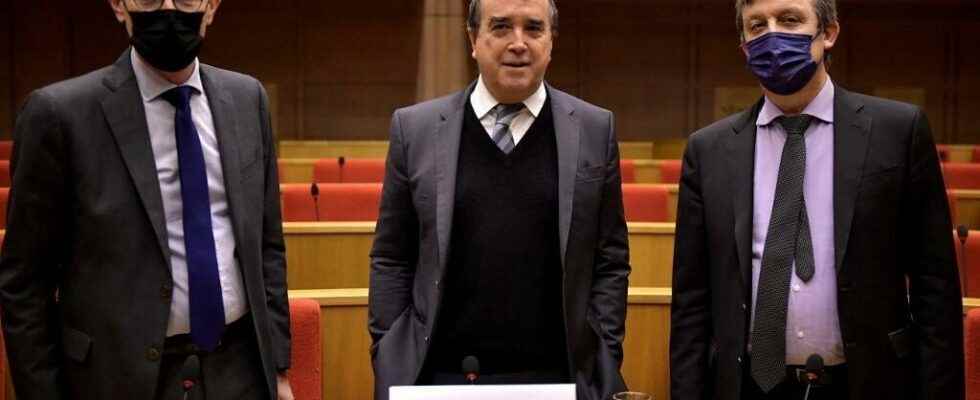This is a subject on which a Senate inquiry committee submitted a report on Thursday March 31 with 32 proposals.
Media concentration? Two major operations, currently in progress, show that it is accentuated. The first is a takeover bid by Lagardère, owner of Hachette, Europe 1, Paris Match and Sunday newspaper by Vivendi, owned by Bolloré and which owns the Canal+, CNews, C8 channels, Prisma magazines and the Editis publishing group.
The second is a project to merge TF1 and M6, which must still receive the approval of the regulatory authority, Arcom, and the Competition Authority. The Senate investigation report was therefore eagerly awaited, even if the election period makes its future very uncertain.
What emerges is very consensual, and it is a point assumed since the commission of inquiry made sure that all its members accepted it, which allowed the publication of a report. This explains why certain provisions have not been passed, such as a strengthening of the powers of Arcom or the possibility for editorial staff to refuse the takeover of their media if a two-thirds majority of journalists oppose it. We did not see either, among the 32 proposals displayed, provisions to limit the conflicts of interest which could arise from dependence on public order from owners such as Bouygues or Dassault.
Opportunities and risks
As for the 1986 law, which serves as the basis for freedom of communication and which does not include digital or even weeklies in its anti-concentration rules, everyone agrees that it is obsolete. But the commission did not venture to say what should be changed in the thresholds and ceilings intended to prevent concentration. And for good reason: the senators, according to their political sensitivity, did not want to hinder the development of large groups like Bolloré-Vivendi or Bouygues-TF1 who insisted on saying that they were “dwarfs” – as Vincent Bolloré says – against digital giants like Google, Facebook or Netflix. It is also the weight of these platforms on the advertising market or in the attention economy which would justify, in the eyes of TF1, that its merger with M6 be authorized.
The senators have therefore not decided in the game of capitalist Monopoly. On the other hand, they agreed to encourage the legislator to vote guarantees in favor of journalists. They also proposed imposing news funding obligations on television to prevent the proliferation of an economic model, well known with CNews, where debate and the outlet of opinion(s) are more profitable than reporting and the search for information.
